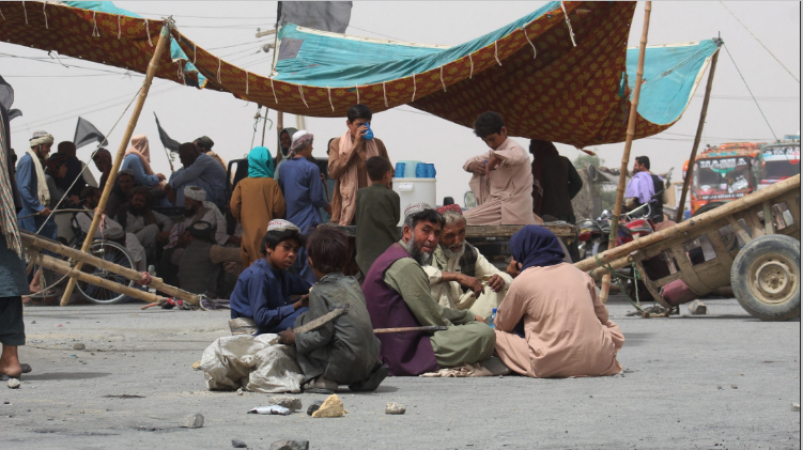
UNO: The Taliban's crackdown on the rights of girls and women, according to a senior UN official, is likely to lead to internal conflict and worsening poverty, along with neglect of more than 50% of Afghanistan's population and willingness to risk international isolation signal of. in country.
According to Markus Potzel, UN Deputy Representative for Afghanistan, some of the Taliban's "claimed and acknowledged achievements" are falling short.
Also Read: India takes subtle jabs at its neighbors while remaining neutral in the Ukraine war
He cited a steady increase in armed conflicts, criminal activity and high-profile terrorist attacks, particularly by the extremist Islamic State group, which has recently shown it is capable of killing Taliban figures, attacking foreign embassies, rockets able to launch. Afghanistan's neighboring country, and has continued its long-running campaign against Shia Muslims and ethnic minorities.
Potzel said with food security deteriorating and winter fast approaching, economic conditions "remain vulnerable."
He urged donors to immediately give $614 million to aid in winter preparedness and an additional $154 million for essential supplies before the winter season cuts off locations. He said the UN's $4.4 billion humanitarian appeal got only $1.9 billion, which is "alarming".
In late August, United Nations humanitarian chief Martin Griffiths said that some 19 million people in Afghanistan suffer from severe food insecurity, which is more than half the country's population. Additionally, "we worry" that the figures will soon worsen as the impending winter season pushes already high fuel and food prices even higher.
Potzel noted that there have been some encouraging developments in Afghanistan recently, but they have been too slow and insufficient to outweigh the negatives, particularly the continued ban on secondary education for girls, which is unheard of in the world, and Strict restrictions on women's rights.
Also Read: Pakistani FM: Afghan women's rights should be a concern for the Muslim world
Women and girls faced severe sanctions during the Taliban's initial rule in Afghanistan, which lasted from 1996 to 2001. Women were forbidden to attend school and were also required to wear a restrictive burqa.
After the Taliban was overthrown by the US military in 2001 following the 9/11 attacks in the US, Afghan girls were enrolled not only in school but in universities for the next 20 years, and many of them were doctors, lawyers, judges , became a member. Parliament, and business owners while traveling without a face covering.
The Taliban promised a more moderate form of Islamic rule, including allowing women to continue their education and work outside the home, after capturing the capital on August 15, 2021, as US and NATO forces prepare for their chaotic withdrawal from Afghanistan. She was in the middle. 20 years.
At first he said there would be no dress code, but he also promised to implement Sharia or Islamic law. But since then, Taliban hardliners have returned to their previous harsh regime, confirming the worst suspicions of human rights advocates and making relations between the Taliban and the already unreliable international community even more difficult.
Also Read: How Afghanistan's problems slowed global progress toward the UN's goal of gender equality
According to Potzel, at UN meetings with Taliban representatives, leaders claim that the Taliban Supreme Leader Mullah Haibatullah Akhundzada has taken the decision and that he stands by it. "He was defended by the radicals around him, but questioned by much of the rest of the movement, who are either unable or unwilling to change the trajectory," Potzel said.
They claimed that this resulted in women and girls being forced to stay at home, being denied their rights, and "totally depriving Afghanistan of the benefits of the significant contribution of women and girls." has given."
"It is unclear what will happen next if the Taliban does not respond to the needs of all sections of Afghan society and engage constructively with the international community within a limited window of opportunity," Potzel said.
“There are further fragmentation, isolation, poverty and internal conflict scenarios, which are likely to result in mass migration and a home environment conducive to terrorist organizations, as well as greater suffering for the Afghan population,” he said.